|
#2
February 9th, 2016, 05:03 PM
| |||
| |||
| Re: LSAT is Easy
Yeah LSAT is not a easy exam but we can make it easy by doing a well plan of study Start your study before time Learn some basic logic. Skip around on the Logical Reasoning and Reading Comprehension sections and do what's easiest for you Take timed practice exams Practice at the time of day when your exam will be, and try to study under real testing conditions. Make simple diagrams for the logic games. Don't worry about the writing sample. Exercise and eat healthy. Try to make the first time the only time Choose your test site carefully. LSAT Test Sample Questions Logical Reasoning When pregnant lab rats are given caffeine equivalent to the amount a human would consume by drinking six cups of coffee per day, an increase in the incidence of birth defects results. When asked if the government would require warning labels on products containing caffeine, a spokesperson stated that it would not because the government would lose credibility if the finding of these studies were to be refuted in the future. 1. Which of the following is most strongly suggested by the government's statement above? (A) A warning that applies to a small population is inappropriate. (B) Very few people drink as many as six cups of coffee a day. (C) There are doubts about the conclusive nature of studies on animals. (D) Studies on rats provide little data about human birth defects. (E) The seriousness of birth defects involving caffeine is not clear. Analytical Reasoning 1. Buses 1, 2, and 3 make one trip each day, and they are the only ones that riders A, B, C, D, E, F, and G take to work. Neither E nor G takes bus 1 on a day when B does. G does not take bus 2 on a day when D does. When A and F take the same bus, it is always bus 3. C always takes bus 3. Traveling together to work, B, C, and G could take which of the same buses on a given day? (A) 1 only (B) 2 only (C) 3 only (D) 2 and 3 only (E) 1, 2, and 3 Reading Comprehension Many, perhaps most, well-disposed, practical people would, if they had to designate a philosophy that comes closest to expressing their unstated principles, pick utilitarianism. The philosophy that proclaims as its sovereign criterion the procuring of the greatest good of the greatest number has indeed served as a powerful engine of legal reform and rationalization. And it is a crucial feature of utilitarianism that it is consequences that count. Now it is interesting that some judgments that are actually made in the law and elsewhere do not appear to accord with this thoroughgoing consequentialism. for instance, both in law and morals there are many instances of a distinction being made between direct and indirect intention — i.e., the distinction between on the one hand the doing of evil as an end in itself or on the other hand bringing about the same evil result as a consequence of one's direct ends or means. So also the distinction is drawn between the consequences that we bring about by our actions and consequences that come about through our failures to act. Also, when bad consequences ensue from our actions and what was done was in the exercise of a right or privilege, the law is less likely to lay those bad consequences at our doorstep. And, finally, if the only way to prevent some great harm would be by inflicting a lesser harm on yourself or on others, then too the law is inclined to absolve us of responsibility for that avoidable greater harm. It is as if the net value of the consequences were not crucial, at least where net benefit is procured by the intentional infliction of harm. Not only are these distinctions drawn in some moral systems, but there are numerous places in the law where they are made regularly. Since in utilitarianism and consequentialism in general the ultimate questions must always be whether and to what extent the valued end-state (be it happiness or possession of true knowledge) obtains at a particular moment, it is inevitable that the judgments on the human agencies that may affect this end-state must be wholly instrumental: human actions can be judged only by their tendency to produce the relevant end-states. Indeed it may well be that even the point and contents of normative judgments — whether legal or moral — are concerned not just with particular end-states of the world but also with how end-states are brought about. These kinds of substantive judgments take the form: there are some things one should just never do — kill an innocent person, falsely accuse a defendant in a criminal proceeding, engage in sex for pay. These are to be contrasted to judgments that this or that is an unfortunate, perhaps terrible, result that (other things being equal) one would want to avoid. The former are — very generally — judgments of right and wrong. It is wrong to do this or that, even if the balance of advantages favors it; a person is right to do some particular thing (help a friend, protect his client's interests) even though more good will come if he does not. 1. The author's point in the passage is primarily that: (A) law and utilitarianism are not always compatible. (B) utilitarianism is the operating philosophy of most people. (C) consequentialism is the basis for legal reform. (D) direct and indirect intentions lead to different end-states. (E) judgments about human actions can be made only by the resulting end-states. 2. Which of the following is NOT a feature of utilitarianism? (A) Results are considered important. (B) Consequences are considered important. (C) The valued end-state is considered important. (D) The means of achieving results are considered important. (E) The net value of consequences is considered important. Writing Sample (sample only) Alice Anderson is a senior at John Paul Jones University. She has been offered two positions as a result of her outstanding record in her major, Television and Radio Broadcasting. As her counselor, you are to write an argument favoring one of the two offers. Two considerations guide your decision: * Alice has a large student loan debt that she has to begin to repay immediately upon graduation. * Alice has as her career goal a position as a network news anchorperson. WAND is the only television station serving a large area located some 250 miles north of the capital of the state. The station has offered Alice a job as a reporter whose principal assignments would be to cover the activities of local governments, politics, and business. in addition to her assigned stories, Alice would have the opportunity to independently prepare stories for possible broadcast. Because the station is small, has a very stable staff, and has limited growth prospects, Alice's chances for advancement are not good. WAND's owner is a former network executive who purchased the station in order to get away from the pressures of broadcasting in major markets. Alice would get only a modest salary at WAND, and she would have to supplement her income with outside work. KBSC is one of three television stations located in the state capital. The station has offered Alice a job as a production assistant in the news department. She would primarily do background research and check facts and sources for the producers and reporters. Production assistants who work hard are promoted to positions as special assignment reporters in about two years. There are many special assignment reporters competing for assignments, most of which involve covering minor events such as political dinners, award ceremonies, and concerts and writing human-interest stories. Most special assignment reporters spend at least five years covering minor events before moving into a position as a general report-anchorperson. KBSC would pay Alice a salary in excess of the amount she would need to live comfortably in the city. LSAT Answers Logical Reasoning 1. The correct answer is (C). If the government acts before the study can be proven conclusively, it will lose credibility. Analytical Reasoning 1. The correct answer is (C). Bus 1: If B, then no E or G Bus 2: If D, then no G Bus 3: C always Bus 3: When A and F take the same bus. LSAT study material 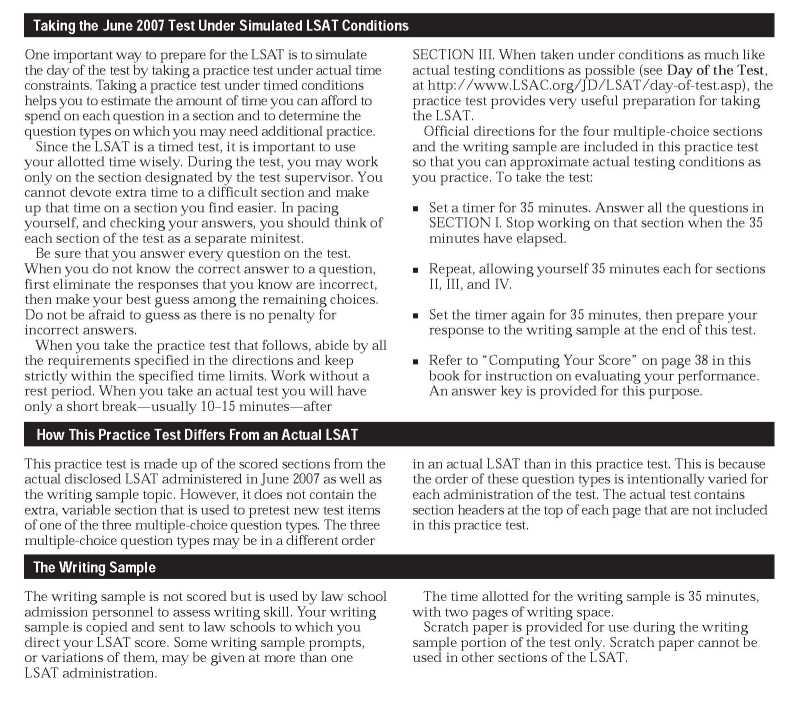 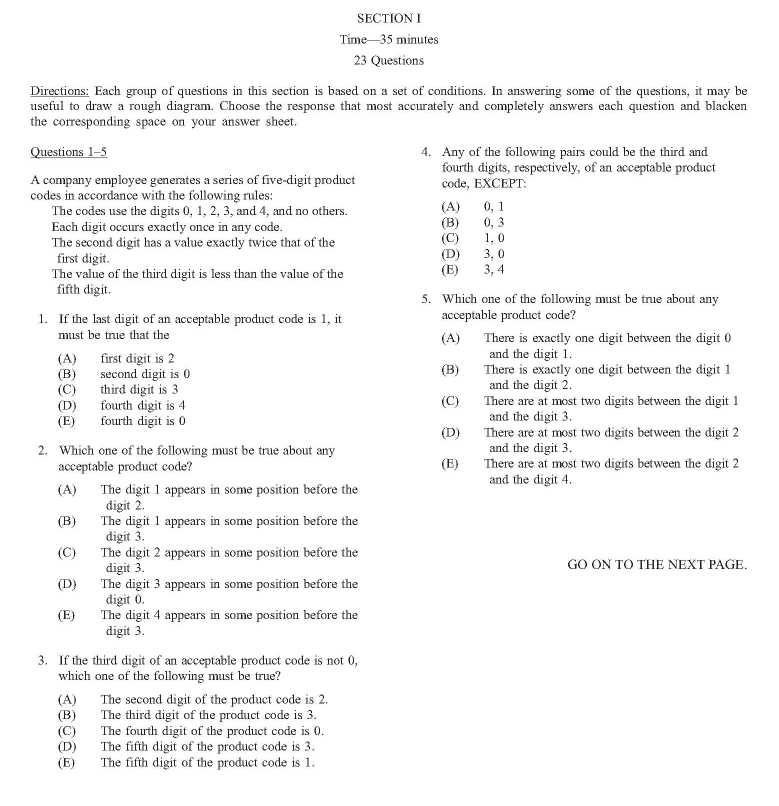 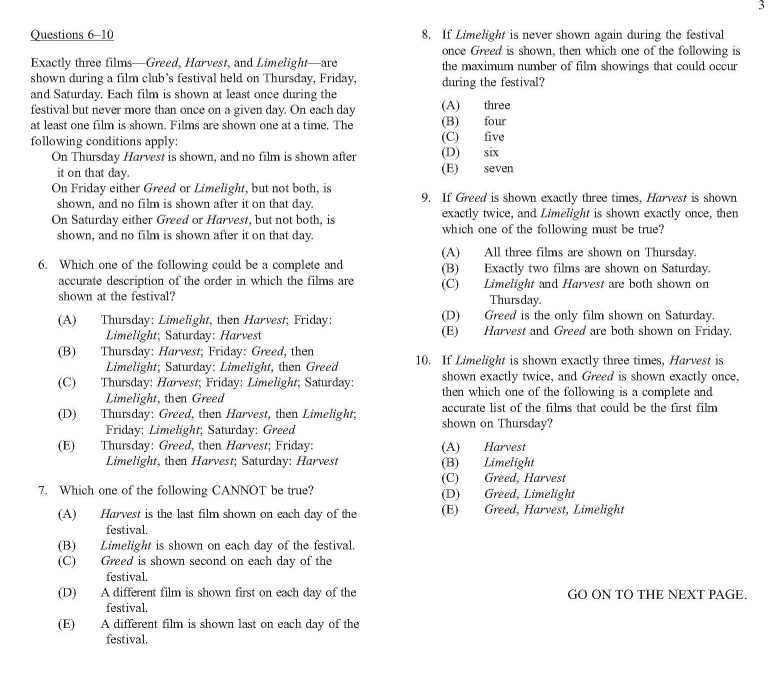 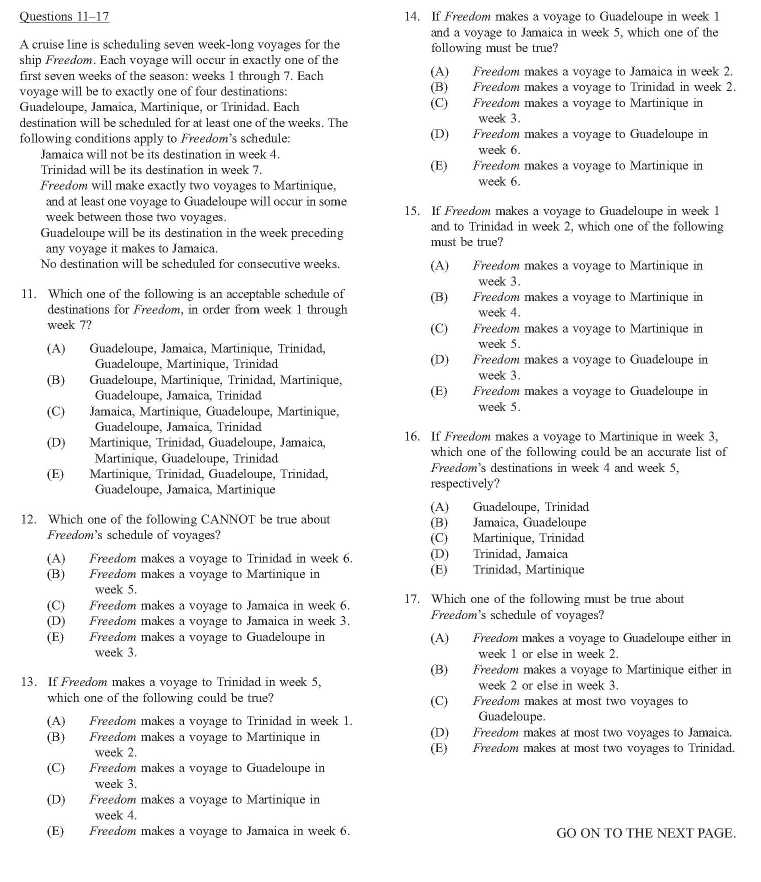 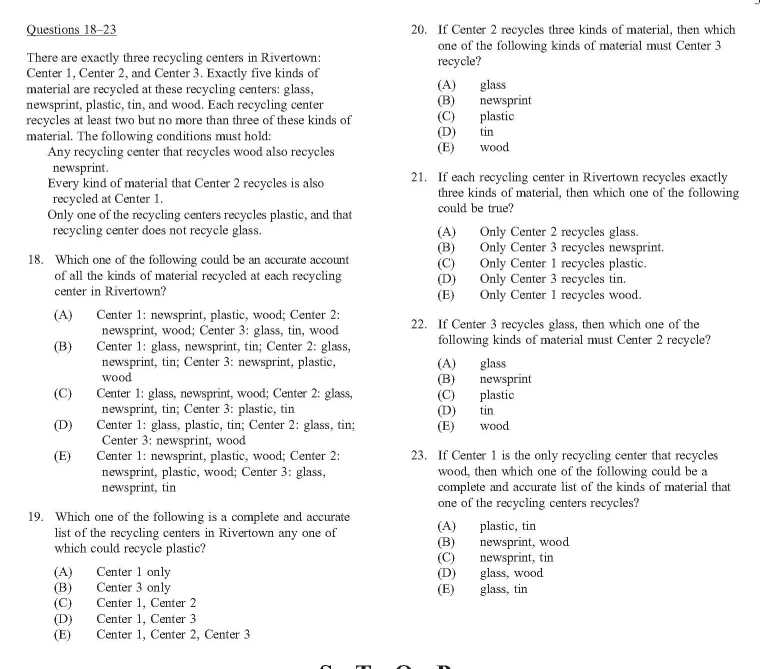 |